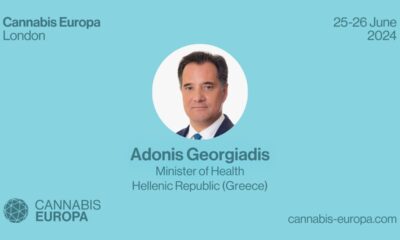An association with ‘hocus pocus medicines’ and ‘unsubstantiated claims’ is to blame for the lack of medical cannabis prescriptions in the UK, according to a former cabinet minister.
Former Cabinet Office Minister, Robert Harris has told a panel that no ‘serious government’ would ‘leapfrog’ safety regulations in order to make medical cannabis available on the NHS.
Speaking at a Conservative Party fringe meeting on 4 October, the former MP made it clear that cannabis should not be treated differently to other medicines, meaning doctors would not prescribe until there is data to prove its ‘safety’ and ‘efficacy’.
“[The industry] appears to be trying to work around long established medical regulations, because it thinks in some ways that it’s different to other medicines,” he commented.
“It is not different, and it won’t be treated differently – to do so might put people at risk and no sensible minister will allow that to happen.”
Mr Harris, who previously served as CEO of the Conservative Party Drug Policy Reform Group, went on to say that the barriers to gathering this evidence are both ‘political’ and ‘financial’.
He added: “There are some serious problems with political will, particularly on behalf of a government that is focused on other issues – it’s got COVID-19 on it’s plate and Brexit coming along – maybe the medical cannabis industry is not politically something that they’re prepared to deal with at the moment.”
However, Michael Abbott, co-founder and chair of US cannabis firm Columbia Care argued that hundreds of clinical trials on the efficacy of medical cannabis in a variety of conditions have already been published around the world.
He argued that such extensive trials were not necessary when there is a large amount of existing evidence to suggest that cannabis based medicines don’t have the same risks as other drugs.
Mr Abott commented: “It’s important to drive these decisions with data, we need to have doctors behind this and educational programmes in place to know what it is that you’re prescribing and for what, but I don’t believe that you have to go to the same extent as you would for example, with a drug that is designed to be a vaccine for covid, which has the potential for actually killing somebody if you get it wrong.”
Also on the panel, Dr Mikael Sodergen, a clinician at Imperial College London, and co-founder of the Sapphire Medical Clinics said it was a matter of UK regulation.
The medical profession was ‘completely unprepared’ for the consequences of the law change in November 2018, he said.
While he had ‘no doubt’ that medical cannabis would become available on the NHS in ‘due course’ it would first need to be deemed as cost-effective.
“It’s not an issue of fast-tracking medical cannabis,” he said.
“The way that medicines are evaluated in the UK is very straightforward and transparent. We understand the process and it is essentially a cost-effective analysis.”
He explained that the National Institute for Care and Excellence (NICE) evaluated cannabis based medicines in the context of chronic pain last year and while they were found to be effective for treating chronic pain, they failed to reach the £30,000 a year threshold, in which a medicine is deemed to be cost-effective to the British taxpayer.
Dr Sodergen added: “I have no doubt that cannabis based medicines will be prescribed for free on the NHS but we need more data and they need to cost less.”

 News6 months ago
News6 months ago
 News6 months ago
News6 months ago
 News6 months ago
News6 months ago
 Science5 months ago
Science5 months ago
 Industry5 months ago
Industry5 months ago
 News6 months ago
News6 months ago
 Medical cannabis6 months ago
Medical cannabis6 months ago
 News5 months ago
News5 months ago












